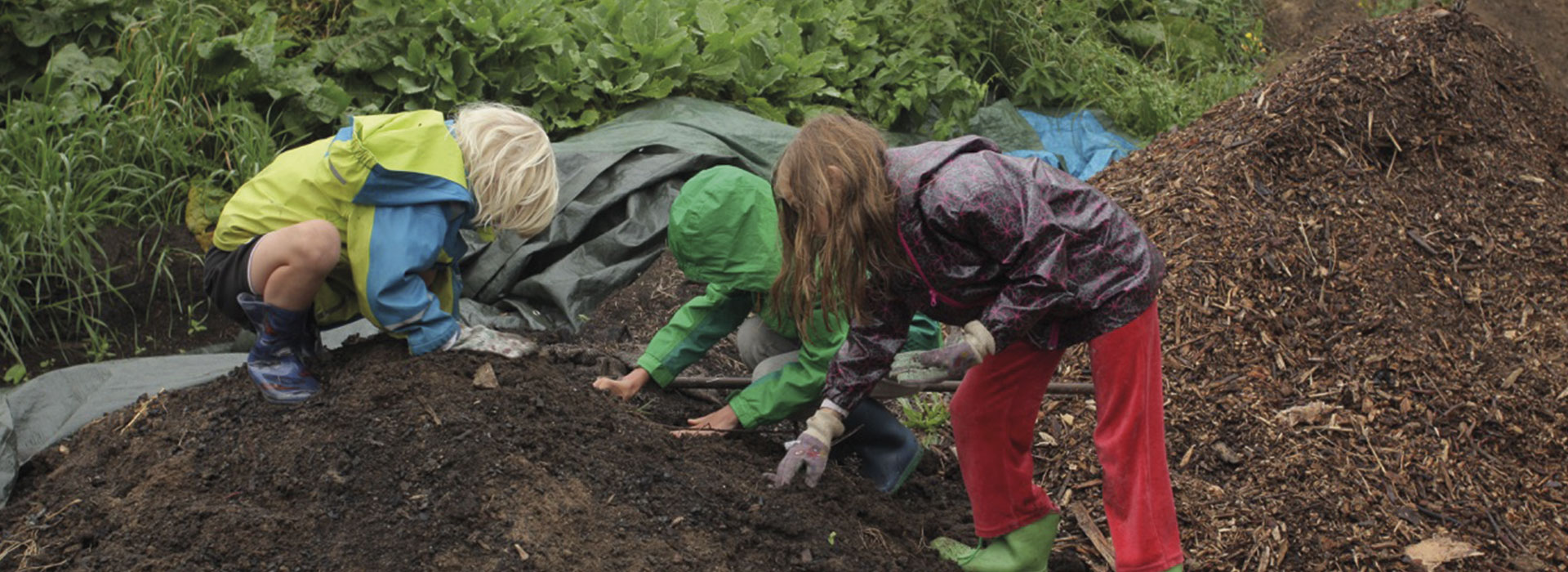- Introduction
- 1. THE IMPORTANCE OF PARTNERSHIPS FOR ENSURING MUTUAL RESPECT
- 2. SAFEGUARDING AS PART OF MUTUAL RESPECT
- 3. OVERCOMING BARRIERS
- 4. CELEBRATING CULTURAL DIFFERENCES
- 5. GENDER
- 6. RACISM
- 7. WORKING WITH CHILDREN
- Excercises and Self Assessment
- References & Links
Overview:
This module deals with mutual respect in an intercultural garden including involving children, being aware of gender issues and other barriers and accepting and embracing different cultures. This module puts a special focus on the following:
- Ensuring that people who are involved with the intercultural garden can be contributors and collaborators in the gardens.
- Understanding the benefits from the wealth of knowledge and experience migrants can bring.
- Exploring key ideas and ways to overcome some of the barriers to inclusion
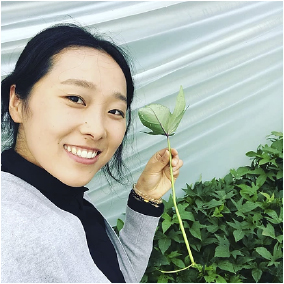
Knowledge
- The importance of partnerships
- Safeguarding
- Creating Opportunities
Skills
- Overcoming barriers
- Communicating and Sharing
- Attitudes
- Supporting other intercultural gardens to welcome migrants to their space.
Mutual respect can be understood as leading people to communicate with each other in such a way that they create common spaces of life and interaction even if differences exist. (DeLue, 2006).
Migrants often lack welcoming places where they can interact outside the home or their work environments. Intercultural gardens can offer a space where mutual respect plays an important role. Intercultural gardens, bring people and families from different cultures together and create a place where everyone is important and has something to give. Intercultural gardens require and nurture the practice of respect.
What is the situation in gardens that makes mutual repect an important topic?
Intercultural gardens are a place where mutual respect is automatically assumed to be happening but conflict between garden users can be an issue due to the often difficult, stressful and sometimes chaotic lives that the participants lead due to their circumstances, and sometimes conflict between communities spills over into the community garden. There can also be a lack of understanding from local gardeners.
Volunteers and staff at the intercultural garden can find that they need to mediate and intercede between parties to keep the peace. Mental health issues and instability can also play a part in creating a lack of mutual respect. This module looks at some of the issues and how they can be dealt with.
The importance of partnerships for ensuring mutual respect
All over Europe there are fantastic organisations, often small charities, providing vital support to people who are migrants. This might include drop-in centres, housing advice, mental health support, legal advice, integration projects etc. Partnering with a refugee organisation can be crucial to making connections with people and for ongoing advice and support for your garden on mutual respect.
Some community gardens offer dedicated sessions for migrants, usually in partnership with a refugee organisation, whilst others invite migrants in their area to attend regular sessions, take part in events or just to drop in. Learning from existing gardens that are already successfully working with and creating an opportunity for mutual respect in their garden is important.
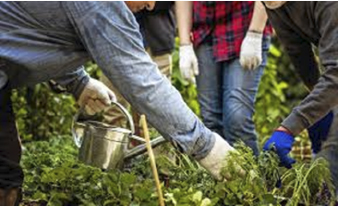 Find out if there is a local organisation that offers training to your organisation or works with migrants who can help you understand more about some of the issues migrants have to face. Local refugee charities and others, can support you to embed a practice and culture of mutual respect and understanding. They can offer additional expertise and support if you come across an unfamiliar situation or problem that you need advice on.
Find out if there is a local organisation that offers training to your organisation or works with migrants who can help you understand more about some of the issues migrants have to face. Local refugee charities and others, can support you to embed a practice and culture of mutual respect and understanding. They can offer additional expertise and support if you come across an unfamiliar situation or problem that you need advice on.
Understanding these issues and how other intercultural gardens have dealt with them is the first step in better understanding how to ensure a intercultural garden where mutual respect is important. Peer to peer learning is an excellent way to gain this knowledge.
‘Working with asylum seekers and refugees gives them the opportunity to teach us, rather than the other way around; many people we work with have deep experience of growing’
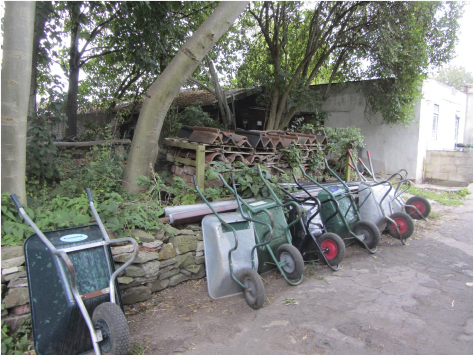
Safeguarding as part of mutual respect
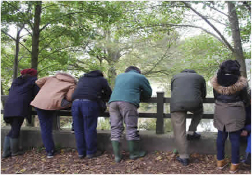 Part of mutual respect is also having a better understanding of the situations people are in and then knowing what to do if people are in distress. Having the knowledge of where to signpost people if they are in crisis means that you will be able to assist them in finding the help they need even when providing that help is beyond the scope of you or your group. In every area there will be local groups and some national organisations that may be able to offer support and advice which are listed in our Country Information Guide.
Part of mutual respect is also having a better understanding of the situations people are in and then knowing what to do if people are in distress. Having the knowledge of where to signpost people if they are in crisis means that you will be able to assist them in finding the help they need even when providing that help is beyond the scope of you or your group. In every area there will be local groups and some national organisations that may be able to offer support and advice which are listed in our Country Information Guide.
Safeguarding everyone involved is essential, most especially for volunteers and migrants who may be particularly vulnerable or at risk of exploitation. As a minimum we recommend the following:
- All groups to have a safeguarding policy in place which suits the type of activities/services you deliver (and takes into consideration anyone involved or who may come into contact
with the group). These policies will ensure everyone understands the issues and the rules. - Ensure the policy explains why some volunteers might be particularly vulnerable.
- Make sure that all volunteers are aware of, and have access to, the safeguarding policy, and ensure they know that any concerns will be dealt with in accordance with the policy.
- All volunteers and service users should know who the safeguarding leads are and have their contact details.
- If you have a management committee/steering group/board etc., they should all be aware of the policy and their responsibilities
For further information see here: https://cityofsanctuary.org/resources-for-groups/safeguarding/
Overcoming Barriers
There can be a number of barriers to ensuring that the intercultural garden has a culture of mutual respect. Overcoming these barriers may not always be easy and may require further training of staff and volunteers as well as well as getting a greater understanding of the kinds of situations migrants have had to endure. Some of these barriers and how to tackle them are studied further in this module.
Some migrants share a history of multiple traumas which may display in many different ways and whilst in some people it might not be immediately obvious, it is important to be aware of some of the signs of stress and to have a clear process if you need to support someone.
Unless you have specific training, it is usually not advisable to try to support someone who is in crisis or displaying clear signs of trauma.
If you do find yourself in this situation it is important to:
- Be sensitive to cultural factors, such as the fear of shame or humiliation of revealing suicidal thoughts.
- Take the person seriously but do not feel like it is your responsibility to support them directly unless you are trained and confident in doing so.
- Explain that you have a responsibility to help. Ask if they have a mental health professional who you can contact. If they don’t then you can contact their doctor the Police or a hospital. Remember that everyone has the right to healthcare regardless of their immigration status
- Have contact details for help lines such as Samaritan International available.
Being clear about your personal and professional boundaries is vital.
For further information see here:
https://health.cityofsanctuary.org/wp-content/uploads/sites/47/2017/12/CoS-Mental-Health-Resource-Pack-digital.pdf
Being destitute means that someone has no money and nowhere to live. Asylum seekers are not always allowed to work and can become destitute when financial support is stopped. Many refused asylum seekers find it hard to access mainstream homeless shelters and can suffer prejudice particularly if they are homeless. Destitution can also aggravate mental and physical health problems and people with no fixed abode can find it extremely difficult to get the support they need.
See here for further information:
Celebrating Cultural Differences
One of the great things about welcoming people from different countries is the cultural diversity it brings. Everyone will come with different ways of interacting and growing food and with their own songs and stories. This diversity should be celebrated but it is also important to be mindful of ensuring that differences are understood and don’t create barriers to participation.
You might consider:
- Using clear signage to direct people and to explain how to use facilities, especially if you have things like composting toilets
- Consider how cultural differences might lead to people feeling excluded, e.g. a Muslim person might not feel able to join a committee if it always meets in a place where alcohol is being served.
- Seek feedback on your activities from people from as broad a range of backgrounds as possible.
Intercultural gardens are working towards mutual respect in a variety of ways. Here are some statements from intercultural gardens in the UK:
The community garden is run by asylum seekers and refugees in collaboration with local community gardeners. We run regular workdays growing a range of food crops including many crops traditionally grown in people's home countries. We also run other activities including workshops, well-being sessions, plant share days and activities connecting with the wider community.
Our vision is to create a growing space that supports community-based sharing of food and cultures. We have an allotment site where we are cultivating an organic kitchen garden, celebrating crops from around the world. We have weekly sessions on a Saturday 3-6pm. The crops grown are used in our monthly community suppers at the Embassy café, the Community Centre and for other community-shared meals on the last Tuesday of every month. We work with a space that provides support and outreach for refugees and asylum seekers. Through the shared activities of gardening, cooking and eating our aim is to enable intercultural understanding and support community integration, health and well-being. ( Global Gardens-Cardiff)
For more information go to → https://learning.ugain.eu/portfolio/uk05/
Don’t be afraid to discuss different attitudes. This can help people understand local values and beliefs such as gender and sexual equality, religious freedom and freedom of expression.
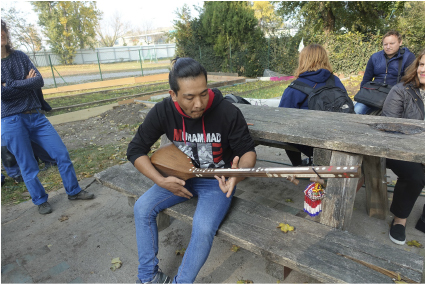
Gender
There are huge disparities between the treatment of genders around the world, and gender-based persecution is recognised as a serious global issue.
Different cultures also have different expectations of genders than the ones we are used to in Europe. For example some people would consider it improper to shake the hand of a member of the opposite sex, and some women may feel they are only able to attend female-only sessions.
- Find out whether there is a demand locally for single-gender sessions, and consider whether you have the capacity to deliver these.
- Be clear that you do not tolerate discrimination of any kind.
- Consider whether your group still subconsciously upholds certain gender stereotypes. Who makes the refreshments, who does the cleaning and who makes decisions?
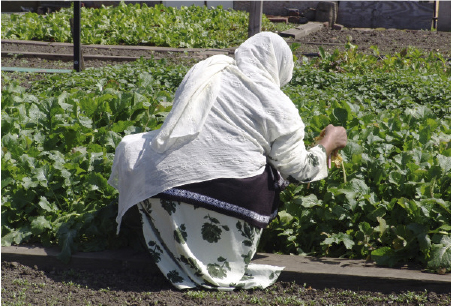
For more information about a garden in Germany empowering women see: https://learning.ugain.eu/portfolio/de03/
Racism
Prejudice of any kind can make people feel unwelcome, uncomfortable and afraid fortheir safety, so ensuring that it is tackled and dealt with swiftly if it is experienced at your site is essential in creating a safe space for everyone.
Things to consider are:
- Making it clear within your site rules and policies that discrimination of any kind will not be tolerated, and displaying these rules prominently.
- Discuss as a group in advance how you would like to tackle incidences of racism, how they should be reported to you, who will deal with it and what the consequences might be.
- Consider how best to approach someone who you feel has made a racist comment, and remember that this person might be a child or person with additional needs.
- Some incidents, experienced either on or off your site, could constitute a hate crime.
- Be aware that migrants may be very mistrustful or fearful of the police and authority figures, so may be far less likely to report crimes that are committed against them.
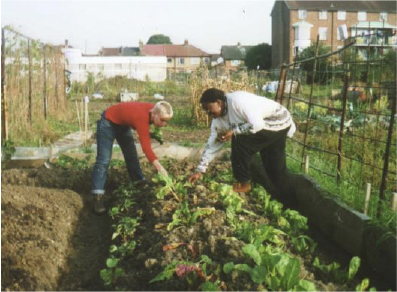
"The most successful community gardens have worked out the management and have been pro-active in such areas as conflict resolution."
Working with Children
Providing a safe, stimulating environment for children is important and means whole families can be part of the urban garden. For migrant parents with young children this can make their situation more isolated so welcoming children into the intercultural garden can be a key way to ensure whole families are involved.
Identify a volunteer, teacher or a parent who is enthusiastic about growing. Make sure that what the children will get out of being involved and what you have to offer them is very clear. Keep everyone busy. Taking turns is part of life but keepany necessary waiting time to a minimum to keep everyone’s interest.
For families coming along having some distractions for younger gardeners with limited attention spans can be a great help. This can mean providing
- A dedicated play area
- A pond
- A raised bed just for children
- A place for children just to dig either soil or sand
- Growing lots of fruit as well as vegetables
- Cooking activities
- A wildflower area
- A place to build dens
All these activities encourage all kinds of families and children to get involved with the intercultural garden. The activities can cover a wide age range, many ethnic origins, differing abilities in language, and varying gardening skills but they maximise participation, and encourage inter-personal skills and communication.
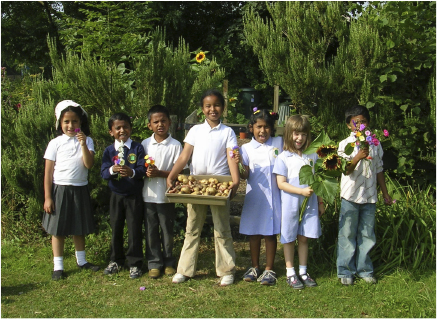
Go to: https://learning.ugain.eu/portfolio/es03-activity-1/ to learn more about enabling children to have contact with nature and gardening. Training of social skills through passing garden knowledge.
Magic Light Pictures have licensed Social Farms & Gardens the rights to use the imagery and content of the Stick Man brand to create Stick Man Activity Trails and associated materials. The trails aim to bring more people, particularly children, into community gardens, city farms and care farms in the UK and to connect with their local environment and find out how things grow. For more information about where the trails are see: https://www.farmgarden.org.uk/stick-man
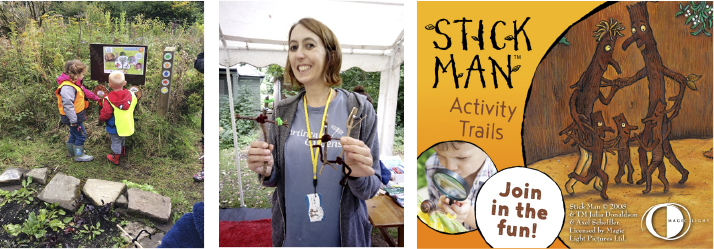
Questions for self-reflection
- What ways do you currently ensure that migrants are both contributors and collaborators in your intercultural garden?
- How have you found out what knowledge and experience migrants coming to your garden bring? What methods do you feel would work in your garden?
- Are their barriers to ensuring mutual respect in your garden? What help or training can you get?
- Are there ways you can support other intercultural gardens to welcome migrants to their space? Can you offer peer to peer support?
[WpProQuiz 2]
- Social Farms & Gardens: https://www.farmgarden.org.uk/
- Gardens of Sanctuary: www.farmgarden.org.uk/sites/farmgarden.org.uk/files/gardens-of-sanctuary-resource-pack-portrait.pdf and report https://gardens.cityofsanctuary.org/wp-content/uploads/sites/134/2018/11/GoS-Report-FINAL.pdf
- Cities of Sanctuary: https://cityofsanctuary.org/
- Gardens of Sanctuary resource pack: https://www.farmgarden.org.uk/sites/farmgarden.org.uk/files/gardens-of-sanctuary-resource-pack-portrait.pdf
- Gardens of Sanctuary case studies: https://gardens.cityofsanctuary.org/case-studies
- Gardens of Sanctuary report: https://www.farmgarden.org.uk/sites/farmgarden.org.uk/files/gos-report-final.pdf
- Samaritan International- www.samaritan-international.eu/
- Refugees welcome in parks: https://refugeeswelcomeinparks.weebly.com
- Working with refugees in community gardens:
www.farmgarden.org.uk/sites/farmgarden.org.uk/files/benefits-community-growing-refugees-and-asylum-seekers.pdf - Working with families: https://www.farmgarden.org.uk/system/files/engaging_schools_children_and_families_0.pdf
European Network of Migrant Women: https://www.migrantwomennetwork.org/ - Refugee and migration teaching resources- Red Cross- https://www.redcross.org.uk/get-involved/teaching-resources/refugees-and-migration

 English
English  Deutsch
Deutsch  Español
Español  Svenska
Svenska 